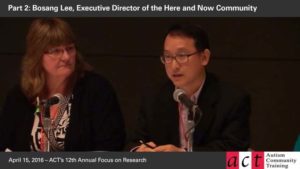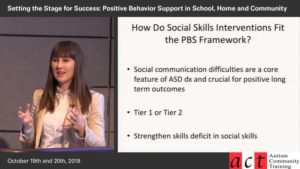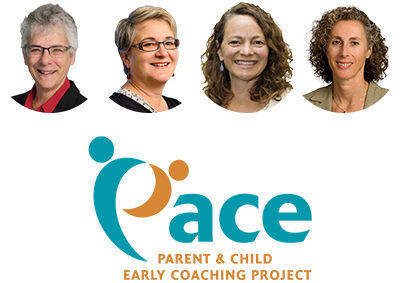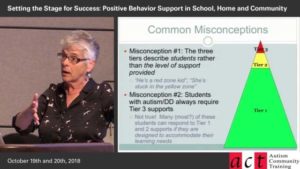Filmed April, 2021 – edited into six parts; total 127 minutes
This Focus on Research presentation examines the impact of COVID-19 on the quality of life and mental health of autistic children and their families, based on a survey of over 200 families. Researchers provide an assessment of the effectiveness of government supports during the initial lockdown period.
A panel discussion, featuring parents speaking to the experiences of families, then provide their recommendations for building capacity and enhancing resilience.
To view the preliminary research results see: The Impact of COVID-19 on Mental Health, Quality of Life, and Service and Support Needs in Families of Children with ASD.
Learning Objectives:
- Understand the impact of COVID-19 on the quality of life and mental health of autistic children and their families.
- Assess the effectiveness of government services and supports implemented during the lockdown period.
- Identify strategies that parents can use to build resilience during this time.
- Generate potential solutions and recommendations for government.
Presentation Handout
Presenter Bios
Grace Iarocci, PhD, Professor of Psychology, SFU
Grace Iarocci, PhD is a Professor of Psychology at Simon Fraser University, and the Director of the Autism and Developmental Disorders Lab. A registered psychologist, Dr. Iarocci works closely with government and community agencies in BC to disseminate research information on ASD and influence policy on ASD and other developmental disabilities. Grace has a particular interest in researching quality of life issues among families living with ASD. A previous presentation by Dr. Iarocci on this topic can be viewed on ACT’s website.
Vanessa Fong, PhD Candidate, SFU
Vanessa Fong is a PhD student in the Developmental Psychology program at SFU. Her research focuses on examining quality of life in culturally diverse families raising autistic children from a patient-oriented framework. Throughout her graduate studies she has become deeply committed to advancing community engaged research in the field of neurodevelopmental disabilities. She hopes that bridging the gap between the scientific and autism community through engagement and collaboration will help prioritize research that is meaningful to those who are affected. The title of her PhD thesis is: A community engaged approach to examining quality of life and service navigation in Korean families raising autistic children.
Moderator
Professor Anthony Bailey, BSc, MBBS, DCH, MRCPsych, FRCPC
Professor Anthony Bailey is Institute of Mental Health Chair and Professor and Chair of Child and Adolescent Psychiatry, Department of Psychiatry, Faculty of Medicine, University of British Columbia. Dr. Bailey’s clinical work focuses on teenagers and able adults with ASD and he is recognized across Canada for his depth of understanding of how public policy effects the lives of those with neuro-developmental conditions.
Part 1: Study Background
Topics Covered:
- Why families of autistic children may be uniquely impacted
- Research before the pandemic
- Study Context
- Research Questions and Methods
Part 2: Impact on the Child and Caregiver
Topics Covered:
- What is the impact of COVID-19 on the child, caregiver and family?
- Relationship between child and caregiver anxiety
Part 3: Impact on Family
Topics Covered:
- How does family quality of life differ before and during COVID-19 lockdown?
- Beach Centre Family Quality of Life Scale
Part 4: Service and Support Needs
Topics Covered:
- What are families’ service and support needs?
- Government, educational supports
Part 5: Characteristics Linked to Improved Family Quality of Life
Topics Covered:
- What characteristics of the family are linked to improved family quality of life?
- Resilience
Part 6: Panel Discussion
Professor Anthony Bailey facilitates a panel of parents engaged in community advocacy, discussing their perspective on the impact of the pandemic on families of children across neurodevelopmental conditions, in particular, autism.
Panelists
Lori Gauthier is an indigenous mother of four sons with autism. Two years ago, she returned with her children to their unceded ancestral territory, (Nak’azdli Whut’en), near the village of Fort St James in Northern BC. Currently she works as a Maternal Child Health Worker and Advocate, providing health and social support to young indigenous families in Fort St James and surrounding First Nations. For the past 20 years Lori has worked throughout the province with young children and their families in both rural and urban communities. Her personal and professional experience supporting marginalized families and youth with diverse needs has given her a unique outlook on various issues and barriers facing families in rural areas.
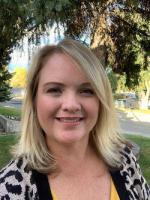

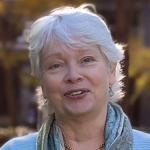
Topics Covered:
00:00 – General commentary on presentation and COVID-19 experiences
12:35 – Discussion on Ministry for Children and Family Development Autism Portal
15:33 – Accessibility of the survey
17:26 – Resilient families
18:29 – How were general relationships (neighbourhood, communities) supportive?
20:05 – How were diagnostic services in British Columbia affected by COVID-19?
25:55 – What is the top priority for the government at the moment?
36:56 – Is the government trying to do too much with too little resources and expertise?
42:56 – Are there any methods of support that were implemented during COVID-19 that will continue on?
44:59 – Has this experience been similar across the country?

